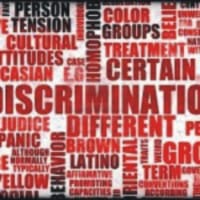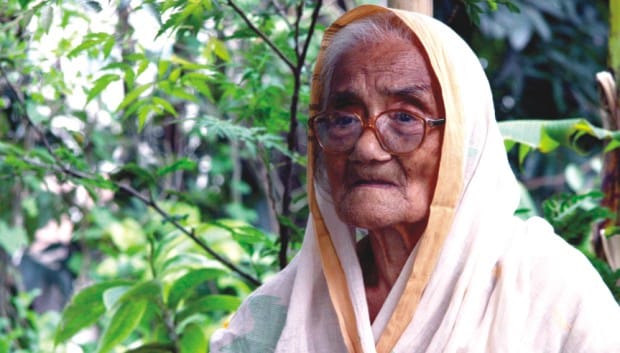| Home - Back Issues - The Team - Contact Us |
 |
| Volume 10 |Issue 20 | May 27, 2011 | |
|
|
Straight Talk Subconsciously Prejudiced NADIA KABIR BARB I looked at my son incredulously. “What did the man say?” I asked him. “Well it was on our way back from school today, we were minding our own business and coming out of the tube station when this random stranger rounded on us and yelled 'get away you menacing youths'! We weren't even doing anything”.
What if we were all born without the ability to see? Then would I be correct in thinking that racism would not exist? If we cannot see the colour of someone's skin then how could we be racist? However, things are never that straight forward. We would probably be intolerant about the way people smelled or spoke. We would judge them by their intonation, pitch or accent. As my son commented we would not be racist, we would be 'voicist'. It appears to be inherent in our nature to find fault or discriminate. A quote by George Aiken (United States Senator from 1941 -1975) seems to echo my sentiments when he said, “If we were to wake up some morning and find that everyone was the same race, creed and colour, we would find some other causes for prejudice by noon.” According to The Oxford Dictionary definition of prejudice, it means a 'preconceived opinion that is not based on reason or actual experience' or 'dislike, hostility, or unjust behaviour deriving from preconceived and unfounded opinions'. We already know this but this kind of behaviour begins at childhood where in school, children are bullied or teased for being different. If you are studious you are labelled a 'swot', 'nerd' or 'geek'. If a child is not academically inclined then they are 'dunces'. Children with glasses are called 'four eyes', overweight children are laughed at and made fun of and children of different races or religions can be ostracized.
While growing up in London as a child, I was never bullied as such but I do recall being called a 'Paki' on a couple of occasions and even at an early age realised it was a derogatory term. The only other time I remember being discriminated against was when I was probably about six years old and had moved to a new school, where a girl in my class did not want to hold my hand when we were paired up for something because I was brown. I found that far more hurtful than being called a 'Paki'. Now when I think back on these incidents, I understand that they were not necessarily directed personally at me but at anyone who was different and probably hostilities learned at home and acted out in the playground. Babies do not come into this world with ingrained prejudices or preconceived ideas but it is the environment they grow up in, the education they receive and the social climate they are born into that shapes their view of the world. As children, intentionally or not, we tend to emulate the behaviour and often the attitude and opinion of our parents and elders. For example, it can be as harmless as supporting a particular football team and disliking another because one or both parents/siblings do so. It can also extend to taking on their prejudices about larger issues such as racism, sexism etc. We do not challenge these prejudices as it is what we believe to be right. As we grow older, we develop the ability to question certain views or mind sets experienced during our childhood and make our own choices. However, in some cases we maintain these prejudices learned in early life and act automatically in situations based on past behaviour. I was thinking of the types of narrow mindedness or bigotry we observe everyday and the list is endless, starting from the fact that we constantly walk around judging people on the way they look, the way they speak, the food they eat or their social standing. In extreme cases these feelings can manifest themselves into racism, sexism, ageism, homophobia, xenophobia, Islamophobia, anti Semitism, etc. What we have also seen from experience and what history has taught us is that these biases can destroy families, create social tensions, instigate wars and also provide the foundation for ethnic cleansing. One of the most poignant examples is the holocaust where approximately six million Jews were exterminated. It would be very naive to think that people's prejudices can be entirely eliminated or eradicated but probably the only way to peacefully coexist or curb hatred and violence borne from such intolerance is to try and educate people and expose them to different cultures, customs and religions.
Copyright
(R) thedailystar.net 2011 |
 I was not sure whether to laugh or be indignant at this statement. Unsurprisingly my maternal instincts won and I was enraged by the fact that some stranger had the effrontery to call my son and his friends 'menacing youths'. On the contrary they are a group of rather polite and definitely not intimidating fifteen-year-olds. I almost felt inclined to hang around the tube station just so I could bump into this man and give him a piece of my mind. But then it struck me that I was being a bit of a hypocrite as I myself have on numerous occasions crossed the road to avoid going past a bunch of teenage boys especially if they happened to be wearing hoodies or the fact that I hardly ever sit on the top deck of a bus as I find the behaviour of the adolescents a bit threatening when they talk loudly, laugh raucously and swear audibly, oblivious to the other passengers around them. I may not shout 'get away you terrifying teenagers' to their face but they have, on more than one occasion made me nervous. I am sure if I had voiced my concerns to some of their parents they might have felt as offended as I had and I am sure in many cases, rightly so. Sadly we all seem to be prejudiced about something, whether we realise or acknowledge it or not.
I was not sure whether to laugh or be indignant at this statement. Unsurprisingly my maternal instincts won and I was enraged by the fact that some stranger had the effrontery to call my son and his friends 'menacing youths'. On the contrary they are a group of rather polite and definitely not intimidating fifteen-year-olds. I almost felt inclined to hang around the tube station just so I could bump into this man and give him a piece of my mind. But then it struck me that I was being a bit of a hypocrite as I myself have on numerous occasions crossed the road to avoid going past a bunch of teenage boys especially if they happened to be wearing hoodies or the fact that I hardly ever sit on the top deck of a bus as I find the behaviour of the adolescents a bit threatening when they talk loudly, laugh raucously and swear audibly, oblivious to the other passengers around them. I may not shout 'get away you terrifying teenagers' to their face but they have, on more than one occasion made me nervous. I am sure if I had voiced my concerns to some of their parents they might have felt as offended as I had and I am sure in many cases, rightly so. Sadly we all seem to be prejudiced about something, whether we realise or acknowledge it or not. 